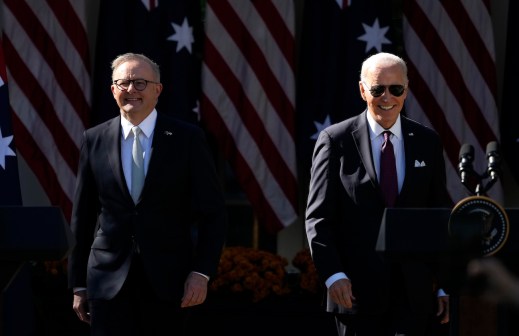U.S. broadband is getting faster, but still falls outside top 10 globally
The United States continues to fall outside of the top 10 countries with the fastest average broadband speeds, according to cloud service and content delivery company Akamai’s latest State of the Internet Report.
The U.S. came in at 12th in the report, which measures global connection speeds and broadband adoption. While it was the highest ranking country in the Americas region and the country’s average speed increased 21 percent year-over-year, a several highly connected countries in Europe and Asia outranked the U.S.
South Korea continued to hold the highest average speed with 25.3 Mbps.

(Graphics made with infogr.am)
Overall, the global average connection speed dipped 2.8 percent to 4.5 Mbps after skyrocketing by 21 percent in Akamai’s previous report. Even with the stagnant average speed, the company said the global broadband adoption rate (meaning connections greater than 4 Mbps) reached 60 percent for the first time.
“One need only look to sheer number of connected device- and smart home-related announcements that came out of the 2015 International CES to see that consumers are continuing to adopt and expect more from connected technology and services,” said David Belson, editor of the report. “The strong year-over-year growth trends illustrated in this quarter’s report show that the Internet is evolving and expanding to meet the growing demands of our increasingly connected lifestyles.”
The report also examines what the company classifies as “attack traffic,” measuring cyber attack location, variety and frequency from July to September 2014.
Nearly half of measured attack traffic originated in China, which was nearly three times more than the United States, which came in second on the list. While the number of countries where attack traffic originated significantly jumped during the quarter from 161 to 201, the overall concentration from the top 10 countries where attack traffic originated only accounted for 82 percent of observed attacks, which is down from 84 percent in the second quarter.
Akamai also said there was a 4.5 percent reduction in Distributed Denial of Service (DDoS) attacks. The company’s customers reported 270 such attacks for the second straight quarter.
One of the more interesting attack sectors Akamai measured for the report was DDoS attacks launched around a number of soccer matches during last year’s World Cup. The company said it found five games that spurred online hacking campaigns, including one where attackers in Croatia launched a DDoS attack against a Brazilian financial institution the day the two countries played each other.
Also, after the Netherlands defeated Spain 5-1 in an opening round game, some poor sport in Spain decided to retaliate for his country’s hapless effort.
“It seems that one attacker unhappy with the game’s outcome decided to retaliate against the not-so-favorable match results with a focused application layer denial of service (DoS) attack against a Dutch news Web site,” the report reads. “Interestingly, most attack requests came from a single Dutch IP address. The target page was the main sports section of the site, and the ‘Referer’ header (the page from which the current request came from) pointed to a news article describing the glorious day for the Netherlands.”
Read the full report on Akamai’s website.






